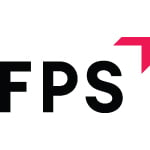

Head of global compliance and integrity animal health | Boehringer Ingelheim Corporate Center




Maximilian Zahn
Head of global compliance and integrity animal health | Boehringer Ingelheim Corporate Center
How do you approach managing legal aspects during periods of instability or crises, and how does your legal strategy align with the broader business strategy to ensure the organisation’s resilience?
In an ever-evolving business and regulatory landscape, compliance functions are no longer “confined” to a reactive role. Compliance functions must continue transforming into strategic partners that enable growth and foster resilience.
In this context, a robust yet adaptable compliance framework is crucial for me to ensure organisational resilience, especially in the regulated animal health industry.
For me, a robust stakeholder interaction compliance system does not necessarily equal countless controls and checks to be on the “super safe side” independent of the concrete risk-profile, always wearing belt and suspenders. I am consciously following a risk-based approach and providing tailored guidance and leadership enabling swift reactions.
The first layer of my approach is designed to anticipate and stay ahead of such developments including potential crisis by constantly checking and assessing relevant internal data, e.g., customer engagement, interaction and financial data, from a compliance perspective.
As second layer, my approach includes proactively following external market- and regulatory developments. This includes co-hosting the Legal & Compliance working group of the Animal Health of Europe (AhE) industry association. It also includes business and market proximity. It is important to sit at the table when decisions impacting the future are made. Thus, compliance processes are either continuously adapted to the market reality or readily available when “strategy hits the market”.
Being perceived as true enablers and sparring partners for the business is paramount for me. A thought-through compliance process which is integrated in business operations means a competitive edge when navigating uncertainties and ambiguity and seizing market opportunities.
What are the main cases or transactions that you have been involved in recently?
The above is a perfect segue to a major initiative I am currently working on: Updating, aligning, and implementing an organisation-wide, streamlined compliance framework for the Animal Health business unit globally.
The updated policies focus on strengthening such risk-based, business-centric approach, while recognising the importance of maintaining local flexibility to ensure competitiveness. At the same time, it enables data driven decision making and oversight to act with speed and to anticipate trends early on.
How have you integrated technology into your legal processes, and what impact has this had on efficiency and compliance?
Based on the updated policies, my team developed an approval app solution automating routine tasks, incorporating global and local compliance requirements. The app solves the dilemma of balancing between standardisation and localisation by implementing compliance by design elements immediately feedbacking the users when local (low risk) standard requirements are not met or exceeded. The system automatically adapts the approval process and potential escalation to line manager(s) and/or mandatory consultation of the compliance function based on pre-defined risk criteria. The app is fully designed and developed inhouse, based on M365 standard apps.
Leveraging this automatization, we significantly reduce bottlenecks, alignment rounds and increase speed. Ultimately saving time for both: our business partners and the compliance team to focus on strategic initiatives and value-added tasks, including proactive risk management and strategic, operational business partnering.